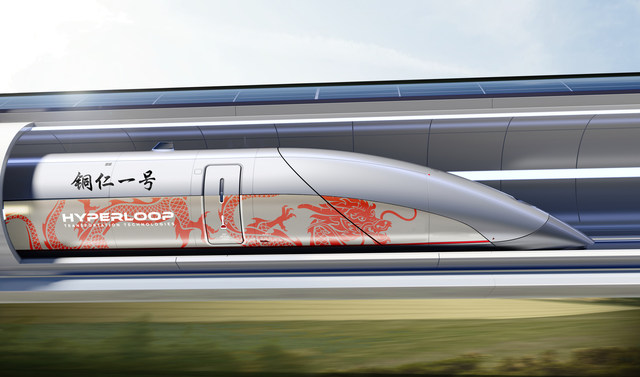Superfast Hyperloop to take shape in Guizhou
 0 Comment(s)
0 Comment(s) Print
Print E-mail chinadaily.com.cn, July 20, 2018
E-mail chinadaily.com.cn, July 20, 2018

When the hyperloop frenzy started in 2013, it was just tech magnate Elon Musk's wild idea about the next-generation of travel.
Five years later, the superfast vacuum-tube transportation system is taking shape in southwestern China's Guizhou province.
Hyperloop Transportation TeHchnologies Inc, a company based in the United States working on the concept of an ultra-high-speed hyperloop, signed a deal on Thursday with State-owned Tongren Transport, Tourism and Investment Group, to build a superfast track in Tongren, Guizhou province.
Dirk Ahlborn, Hyperloop's chief executive, said the company's cooperation with countries "has proved the hyperloop transportation system will be a workable plan".
The route will cover an initial distance of 10 kilometers from the city to Tongren Fenghuang Airport, with an estimated investment of 2 billion yuan (US$295 million).
During the second phase, the project will extend 50 km from the city to Mount Fanjing in Tongren. And the investment in time will add up to more than 10 billion yuan.
Under the agreement, Hyperloop and the Tongren municipal government will establish a joint venture to develop the hyperloop project.
Tongren has partnered with China Railway Fifth Survey and Design Institute Group Co and China Railway Maglev Transportation Investment & Construction Co, making 50 percent of the financial contribution to the venture. Hyperloop will fund the remaining 50 percent.
Hyperloop will be responsible for providing the technology and equipment. Tongren will help the joint venture to certify the tube, establish the project and make regulations for the new technology.
The hyperloop is a shuttle that runs on magnetic rails in a vacuum-tube, enabling a near supersonic speed with little resistance.
The new train's body, track and suspension system will require fewer permanent magnets than those in other labs around the world, said Wang Mengshu, an academician at the Chinese Academy of Engineering.
Feng Hao, a researcher at the Institute of Comprehensive Transportation at the National Development and Reform Commission, said, "There are still a large number of technical issues that need to be tackled via research work and various tests in different stages, no matter the facility will be built under or above the ground."






Go to Forum >>0 Comment(s)